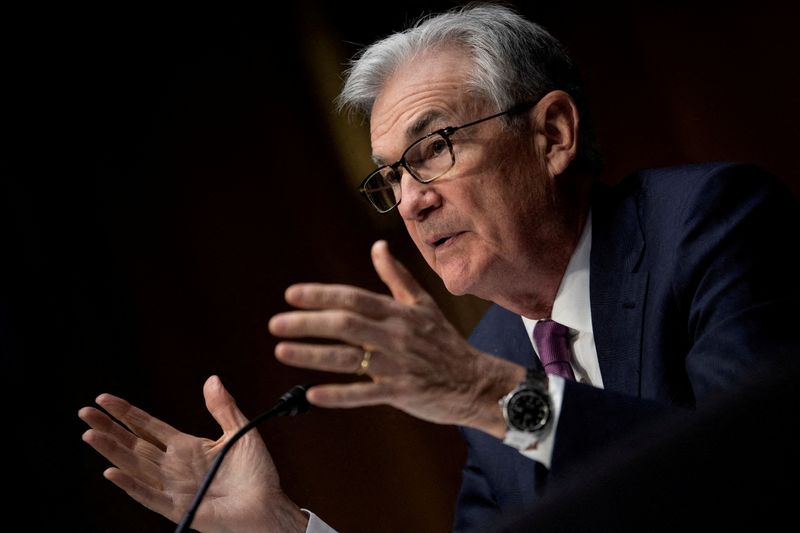By Davide Barbuscia
NEW YORK (Reuters) - U.S. credit markets saw some respite after the Federal Reserve hiked interest rates last week, but the relief is expected to be short-lived as uncertainty around the U.S. central bank's ability to engineer a soft landing for the economy continues to weigh on risk assets.
Corporate bonds have had a rough start to the year as worries that tighter monetary policies could dent companies' profits and raise borrowing costs made investors more cautious.
But after the Fed increased rates by a quarter percentage point last week, corporate credit has seen some buying activity, moving in line with a stocks rally which was partly driven by investors comforted by more clarity on rate hikes and the Fed's decisive action against surging inflation.
The yield spread on the ICE (NYSE:ICE) BofA U.S. High Yield Index, a commonly used benchmark for junk bond demand, had risen to 421 basis points as of March 15 - its highest since December 2020 - from 305 basis points at the start of the year, as investors pulled back from the market.
Those yields dropped by 25 basis points on March 16, when the Fed hiked rates for the first time in three years and set out an aggressive path for hikes for the remainder of the year. Yields have dropped further since, and stood at 367 basis points on Thursday.
Similarly, the yield indicated on the ICE BofA U.S. corporate index, which tracks dollar-denominated investment grade-rated corporate debt, dropped last week, from 152 basis points - which was its highest since July 2020 - to 146 basis points. It fell further to 132 basis points this week.
"Credit spreads have generally rallied in sympathy with risk assets more broadly post-Fed," said Lauren Wagandt, a U.S. investment grade fixed income portfolio manager at T. Rowe Price. "Post-Fed, we have seen yield-based buyers step in, as all in corporate yields have risen and volatility has come down."
Spreads refer to the interest rate premium investors demand to hold corporate debt over safer U.S. Treasury bonds. They narrowed last year as government debt yields dropped, driving money into securities with lower credit ratings than Treasuries.
Fed Chair Jerome Powell said on Monday the central bank must move quickly to counter soaring inflation and that it could use bigger-than-usual rate hikes if needed, causing a sharp sell-off in government bonds.
Despite the credit rally, investors say the uncertainty around the Fed's ability to reduce inflation without causing a recession is an underlying risk.
"We believe the rally was more of a relief rally and will end up being short-lived given the same risks remain in place," said Wagandt.
That is already starting to show. BlackRock’s iShares iBoxx $ High Yield Corporate Bond ETF - an exchange-traded fund which tracks the U.S. junk-bond market – jumped 1.4% on March 16 to trade at $81.7 a share, but it has lost momentum this week.
Its investment-grade corporate bond equivalent has also lost some steam, dropping 1.3% from last week to trade at $120.22 a share on Thursday.

Neil Sutherland, portfolio manager at Schroders (LON:SDR), said corporate spreads had widened to a point that, absent a recession, could be a good buying opportunity, particularly for overseas investors.
"You may have a window where spreads do OK in the next couple of months ... the key thing is, can the U.S. economy avoid recession in the face of an aggressive Fed? I think the jury's still out on that," he said.